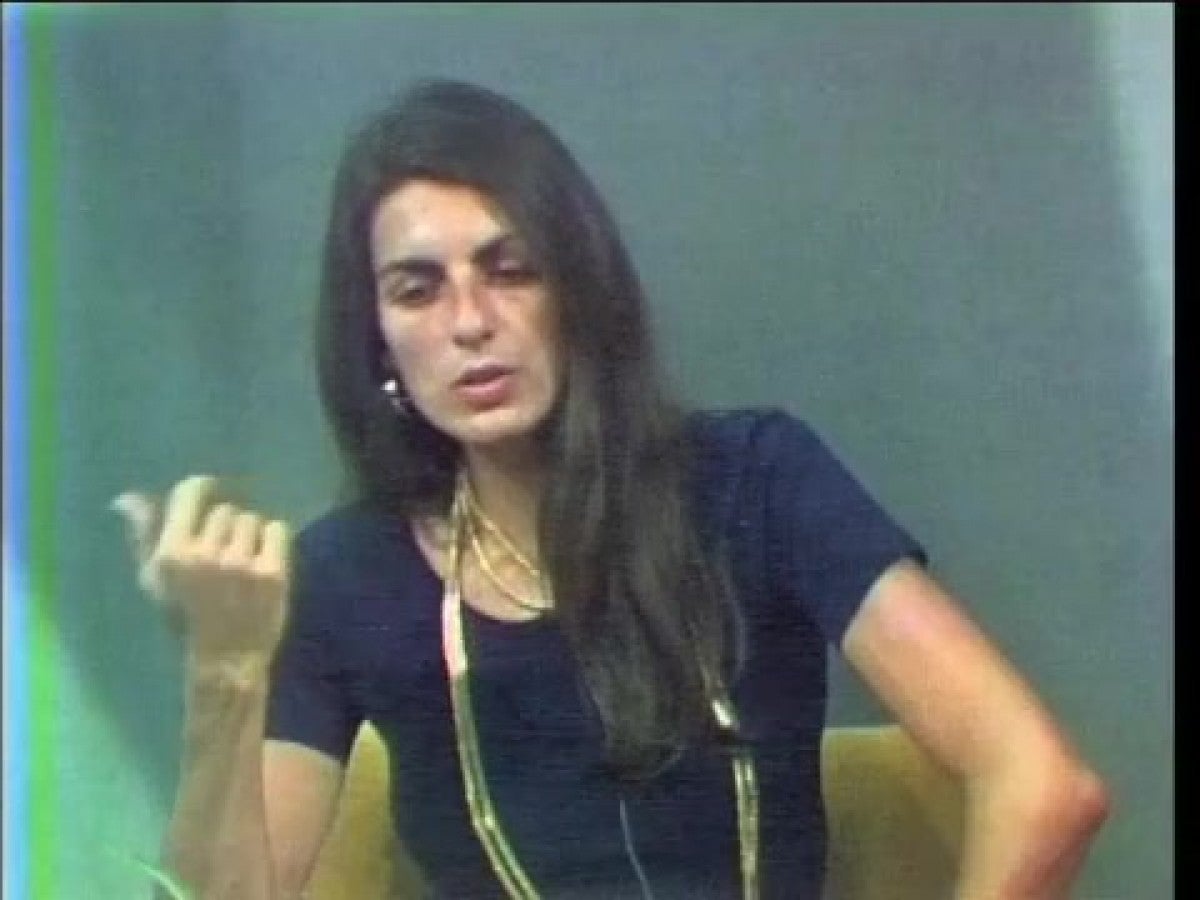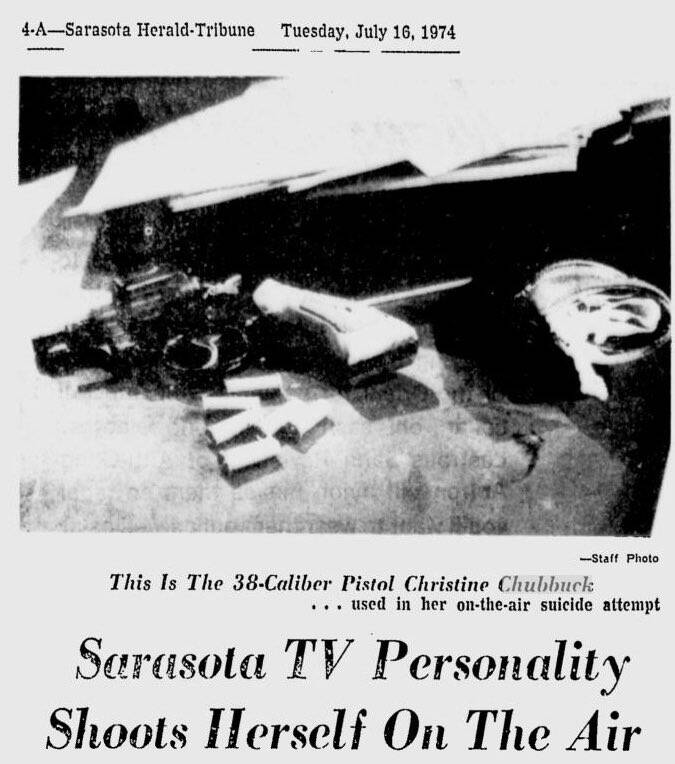Can a single moment of despair shatter the illusion of normalcy and etch itself into the collective memory of a nation? The chilling reality is that on the morning of July 15, 1974, a news anchor named Christine Chubbuck, battling deep-seated depression, committed suicide live on television, an act that continues to haunt and fascinate, decades after it occurred.
The story, a tragic intersection of personal pain and public performance, unfolds in Sarasota, Florida. It was here, in the confines of a local broadcasting station, that Christine Chubbuck, a newsreader struggling with a profound sense of isolation and mental health challenges, made a decision that would forever define her legacy. The incident, a stark and disturbing example of the fragility of the human psyche, stunned audiences and made headlines worldwide, although its impact has faded from the forefront of mainstream media over time. Despite the passage of years, the event continues to capture the morbid curiosity of the public.
| Attribute | Details |
|---|---|
| Full Name | Christine Alice Chubbuck |
| Date of Birth | August 24, 1944 |
| Date of Death | July 15, 1974 (suicide) |
| Place of Death | Sarasota, Florida, United States |
| Occupation | Television News Reporter, News Anchor |
| Station | WSTV-TV (now WWSB) |
| Notable for | First person to commit suicide on live television |
| Mental Health | Battled with depression for many years |
| Family | Survived by her mother and brother |
| Additional Info | Chubbuck had a history of suicidal ideation and had sought professional help. She felt unfulfilled in her personal and professional life. Her actions are a stark reminder of the impact of untreated mental illness and the pressures of the media industry. |
| Reference | Wikipedia |
The events of that fateful day began, as they often do, with the mundane routine of a local news broadcast. The news program in question was called "Suncoast Digest," and its viewers were accustomed to a typical mix of local stories and current events. But on that particular morning, the familiar format took a horrifying turn. Before a live audience, and with cameras rolling, Christine Chubbuck delivered what would be her final, heartbreaking words. She then proceeded to shoot herself in the head, shocking the viewers and sending ripples of disbelief and horror through the station.
- Nick Cannon Latest News Updates On The Multifaceted Star
- Top Ullu Web Series Actresses 2024 Names Photos Roles
The details of the broadcast remain a source of intense interest, despite the limited availability of definitive records. While rumors and fragmented accounts have circulated for decades, the full extent of what transpired during those final moments is not fully known. Many copies of the video were destroyed at the request of her family.
The context surrounding Christine Chubbuck's suicide is as important as the act itself. She was a woman who struggled with depression for years, battling feelings of loneliness and a lack of fulfillment. Several reports suggest that she sought professional help, but her inner demons continued to plague her. The pressures of the media industry, the competitive nature of her job, and her difficulty forming meaningful relationships likely exacerbated her mental health struggles.
The aftermath of Chubbuck's suicide was characterized by both shock and an attempt to understand why this tragedy occurred. The incident had a peculiar resurgence online, where groups became obsessed with finding and sharing information. Her death became a chilling reminder of the importance of addressing mental health issues, particularly within the demanding environment of the media.
- Top Vegamovies Alternatives In 2024 Stream Movies Shows Safely
- Sone 385 Hikaru Nagi The Rising Stars Journey Impact
The impact of Christine Chubbuck's actions extends beyond the immediate shock and horror. The incident has been revisited in documentaries and films, with filmmakers delving into the dark life of Chubbuck and exploring the factors that led to her suicide. The story has served as a warning about the potential dangers of untreated mental illness, the pressures of the media industry, and the importance of empathy and support.
One of the most enduring mysteries surrounding Chubbuck's suicide is the fate of the video footage. Contrary to popular belief, some sources claim that the tape still exists, despite the fact that many copies were reportedly destroyed. The notion that this graphic recording could be circulating is a source of discomfort for many. However, it is also a testament to the enduring fascination with this tragic event.
The news media's handling of the incident and the subsequent years also raise important questions. Christine Chubbuck's death made headlines for a brief period, but her story was largely forgotten by mainstream media, replaced by other tragedies or sensational stories. Despite the fact that her death was a landmark event the first suicide on live television the story was eventually deemed "unmarketable."
The response to Chubbuck's suicide highlights the societal stigma surrounding mental health, and the reluctance to confront the complex issues that can lead individuals to the brink. It also raises ethical questions about the media's responsibility to report on sensitive issues like suicide, and the impact of sensationalism on the lives of those involved. The incident happened in 1974, a time when awareness about mental health was not at the level it is today, which may have contributed to the lack of attention and understanding that was given to Chubbuck's case.
The details of the broadcast itself are difficult to reconstruct with complete accuracy. A reconstructed reenactment, using the real audio, of Christine Chubbuck's final broadcast from 1974 exists, which can provide a glimpse into the sequence of events. The exact nature of her final words, and the specific actions she took, remain the subject of debate and speculation. However, there is enough available information, including the police report, to provide a framework for understanding what happened.
The story of Christine Chubbuck is a reminder of the human cost of mental illness. It also serves as a cautionary tale, illustrating the potential for tragedy when individuals are left to struggle with their problems in isolation. The story serves as a tragic and terrifying moment for all involved and it left many people asking why it happened. The focus, understandably, should be on the importance of seeking help and supporting those who are struggling. In todays digital world, a television hosts suicide on air would be highly publicized. However, Christine Chubbucks death in 1974 made a few headlines before her story faded away.
It is vital to acknowledge the sensitivity of the subject matter, while recognizing the importance of understanding the events that transpired. The purpose is not to glorify or sensationalize suicide, but to shed light on a deeply tragic event. By understanding the context of Christine Chubbuck's actions, and by remembering the importance of mental health and support, we can hope to prevent similar tragedies from happening in the future.
The legacy of Christine Chubbuck is complex. It is a reminder of the human cost of mental illness, the pressures of the media industry, and the importance of empathy and support. The circumstances of her death, the lack of understanding surrounding mental health in 1974, and the societal pressures she faced, all contributed to the tragedy. This is a story that, despite the passage of time, continues to resonate and leave us pondering the depths of the human condition.
The incident had a peculiar resurgence online, where groups became obsessed with finding and sharing information, fueling the intrigue and the morbid curiosity. This is indicative of a broader societal fascination with death and the macabre, particularly when it involves a public figure. The need for understanding, to find an explanation, drives those efforts.
Furthermore, the tragic story takes us back to Florida, 1974, where Christine Chubbuck was a newsreader for a local broadcasting station in Sarasota. On the morning of July 15th, 1974, at around 9:30, American television news reporter Christine Chubbuck shot herself in the head on live television, following a fierce battle with depression.
- Aagmaalgives Is It Safe Analyzing Adult Content Trust
- Nicholas Ralph Bio Career Relationship Status Everything You Need


